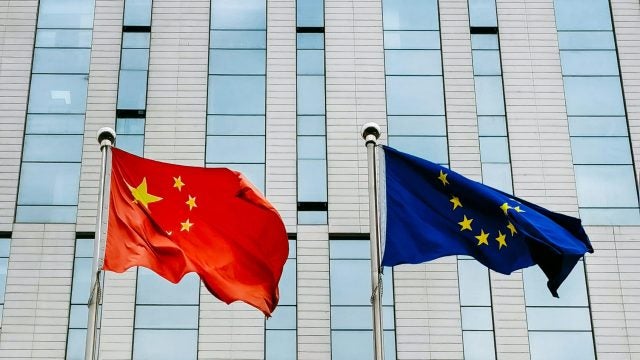
Title: ‘Green’ Extractivism and the Limits of Energy Transitions: Lithium, Sacrifice, and Maldevelopment in the Americas
Increasing demand for electric vehicles and the electrification of infrastructure is expanding demand for lithium, a key ingredient for energy storage technologies. This demand already outstrips current supply and productive capacity, which is particularly true in South America’s so-called ‘lithium triangle’ in Northern Chile, Southern Bolivia, and Northeastern Argentina where a long-anticipated lithium boom is finally arriving. However, prevailing plans for decarbonization recreate rather than replace unequal dynamics between the North and South, potentially undermining the medium- and long-term viability and sustainability of the energy transition.
Transitions
Months after former Bolivian President Evo Morales was forced from office in October of 2019, Elon Musk triggered conspiracy theorists across the political spectrum when he tweeted “We will coup whoever we want! Deal with it.” The coup, while certainly smiled upon by the United States, was largely the result of internal politics rather than green imperialism or securing resources for Tesla. The post-coup interregnum of Janine Añez, if anything, further delayed the extraction of Bolivia’s lithium. Now that Morales’s party, the Movimiento al Socialismo (Movement toward Socialism, or MAS), has returned to power with the election of Luís Arce, the exploitation of lithium once again drives Bolivia’s development policy agenda. Lithium in Bolivia is a ‘transition metal’ not only for its role in decarbonizing energy systems, but for the way it is meant to transition the country towards economic development.
Bolivia is an outlier among the big three South American lithium producers. In Argentina, lithium extraction is an entirely private affair, filtered through provincial politics and almost entirely driven by foreign investment. In the provinces of Catamarca, Jujuy, and Salta, the US geopolitical machine has been most actively attempting to head off China’s growing influence. Chile’s lithium industry is the most established in the region, but it is dwarfed in national importance by copper—another element that plays a vital role in transition technologies.
While putatively a private sector concern in Argentina, lithium extraction in Chile is monopolized by two companies, Sociedad Química y Minera (SQM) and Albermarle. The former was Chile’s national chemicals corporation gifted by former dictator Augusto Pinochet to his then-son-in-law in the 1980s. The U.S.-based Albemarle was grandfathered into mining codes that place lithium in a bizarre status that has by and large limited the involvement of other companies – like China’s Tianqi – to partnerships, mergers, and acquisitions.
For its part, the MAS government under Evo proposed a ‘progressive extractivist’ path for the lithium reserves in the southern Salar de Uyuni. With this approach, the national government would play a central role in developing the industry, and Evo insisted repeatedly that lithium would be different than other mining industries in Bolivia’s past. Rather than exporting raw materials to the Global North or China, where more technologically-intensive and value-added production are located, Evo promised a domestic EV supply chain that would drive expansions in education and productive infrastructure while increasing access to high-tech and eco-friendly consumer goods. Lithium in Bolivia would play a role not only in the transition from fossil to green capital, but in its transition from the developing to developed world.
By the time of his ousting in October 2019, Evo and the MAS scaled back initial nationalist lithium plans, and tensions with local authorities in Potosí – the department in which lithium deposits are situated – on the matter of national versus local control of the industry had already passed their crescendo. The successor MAS government of Luís Arce has been less insistent on the role of the state, and has made overtures to industry, for example, through collaborations with key market advisors Benchmark Minerals. Bolivia is, in other words, falling into more conventionally extractivist practices – in which raw materials leave the Global South to be turned into more valuable goods in the Global North – followed by Argentina and Chile as it seeks to capitalize on increasing global demand for transition minerals.
Nature-Exporting Societies
Though Argentina, Bolivia, and Chile have pursued different courses, none have fundamentally challenged their presumed role in the global economy. Writing about the oil industry’s relationship to the formation of state and society in Venezuela, Fernando Coronil evocatively characterized the Global South as “nature-exporting societies.”[1] Dependent on ground rent for government revenues, nature-exporting societies seek to grow and diversify their economies as a means of achieving independence and human development. However, “paradoxically, in pursuit of their comparative advantage, these nature-exporting nations are frequently recast in their old colonial role as sources of primary products, a role now rewritten in terms of the neoliberal rationality of globalizing capital.”[2] The Global South has, in other words, been identified with what leaves it, while the anticipated second step of value added production and economic diversification is stymied by trade barriers, poor planning, and structural adjustment. Development remains a fleeting horizon.
At his 2021 Earth Day Summit, Joe Biden announced that the United States – a climate rogue state long before the Trump years – would halve its carbon dioxide emissions by the end of the decade. He also announced ambitious plans to ‘electrify the fleet’ and invest in green power infrastructure. Biden has proved more proactive on climate and other matters than many anticipated. The framing assumptions of his administration’s measures, however, are rather similar to those of the fossil capital age. “The countries that take decisive actions now” in response to the climate crisis, said the President, “will be the ones that reap the clean energy benefits of the boom that’s coming.” Beyond meeting emissions targets, the economic boom associated with establishing and expanding new green industries and retrofitting infrastructure promises a new era of plenty.
Despite his attempt to resuscitate multilateralism after years of fragmentation and isolationism in capitalism’s historic core, Biden’s approach remains framed by nationalist blinders. Responses to the climate crisis are seen as growth opportunities and in Cold War-style competition with China. Slogans like ‘build back better’ that have become currency during the COVID-19 pandemic, furthermore, highlight the belief in states like the United States that the post-transition global order will resemble today. The cruelties of the past write the optimism of the present.
Sacrifice Zones
South America’s largest lithium deposits are situated in Andean highland deserts. The dynamics between people and place in these arid ecosystems have evolved over generations, and the full impact of lithium mining on aquifers, agriculture, and wildlife habitat has already been significant. Communities on the front lines of lithium extraction warn that increased exploitation of the salt flats could be disastrous. Many are organizing to prevent it.
For others, the issue is less mining per se than the way in which it is imposed from afar. In Potosí, Bolivia, for example, the question of lithium extraction is grafted to tensions with the national government over regional autonomy and the distribution of rents. Concerns surrounding the environmental impact of lithium extraction are significant, but often have as much to do with the lack of meaningful prior consent as anti-mining sentiments. In Salinas Grandes, Argentina, national and local authorities favored the interests of foreign mining companies over that of local indigenous groups. As a result, whereas extraction in neighboring communities has moved forward, in Salinas Grandes a protracted standstill has ensued, with over thirty communities working together to propose alternative protocols for free prior and informed consent.
Lithium is a finite, but not particularly rare, mineral, and recycling technologies are already technologically feasible, if not yet economically viable, under prevailing market constraints. The impacts that always accompany mining of any sort illustrate that the questions of where, when, and how extraction takes place are as much political and social, technical and geological in nature. Matters of informed consent only illustrate part of the uneven dynamics at play in the mining taking place under the banner of the energy transition. The European Union, typically, is keen to onshore as much of the value added elements of climate change mitigation supply chains as possible but less eager to host the requisite mines close to home, as illustrated by the recent failure of proposed lithium mines in Portugal.
In a recent report on lithium, water, and human rights in Argentina, Bolivia, and Chile the Observatorio de Conflictos Mineros de América Latina concluded forcefully:
You cannot explain to communities that have ancestrally and sustainably inhabited their ecosystems and territories that the solution to climate change is the destruction of Andean mountain salt flat ecosystems. These communities are not part of the problem, and now, unjustly, are supposed to be part of a solution which is nothing less than the sacrifice of their lifestyles, their traditions, culture, spirituality, customs, and social relations – that is to say, their existence. We have to think of other solutions [to the climate crisis] that do not involve the sacrifice of sustainable forms of life (15).
The peoples and places that have contributed the least to the climate crisis are disproportionately experiencing its worst impacts. It is doubly cruel, then, that the global designs of the energy transition would sacrifice sustainable ways of existing in the Andes so that the North can extend its own fundamentally unsustainable lifestyles with minor inconvenience. They have been deemed expendable, a pattern that is both historically familiar and increasingly widespread.
What is (Not) to be Done
The global economy tends to extend neocolonial inequalities rather than upend them. Addressing this structural unevenness, however, does not merely mean more loans or development aid. This is the promise of frameworks like the United Nations’ Sustainable Development Goals, which have and will continue to fall short on all of the above.
Nor will Tesla save us from the climate crisis. Fantasies of a technological fix to the intersecting global crises of the present are not expressions of an unwavering faith in human ingenuity. Rather, the endless repetition of ‘innovation’ distracts from more fundamental inequalities baked into the global economy. More growth cannot repair the damage done by valuing economic growth above all other aspects of collective life.
Thinkers and movements in Latin America have been rethinking development since the emergence of developmentalism as a paradigmatic approach to relations between the North and the South. The one-sidedness of development, its persistent elusiveness, and its negative consequences have led some to consider of development in terms of maldevelopment, a logic that inherently and intentionally – rather than accidentally – destroys the South for the benefit of the North. Energy transitions that fail to address this dynamic head-on undermine themselves by extending the toxic present into the future. Rather than sacrificing existing sustainable ways of life for unsustainable myths of development, our response to the climate crisis must be collective, participatory, and oriented by social and ecological justice.
[1] Fernando Coronil. 1997. The Magical State: Nature, Money, and Modernity in Venezuela. Chicago: University of Chicago Press, p. 7.
[2] Ibid.
. . .
Donald V Kingsbury is an Assistant Professor (teaching stream) in the Department of Political Science at the University of Toronto. His research and teaching focuses on Latin American Politics, Political Ecology, and critical approaches to development. His most recent book, with Teresa Kramarz, is Populist Moments and Extractivist States in Venezuela and Ecuador: The People’s Oil? (Palgrave, 2021).
Image Credit: Dan Lundberg, Wikimedia, Creative Commons License
Recommended Articles

This article contends that South Africa’s 2025 G20 presidency presents a critical opening to shape governance of critical mineral supply chains, essential for renewable energy, digital economies, and national…

Germany’s economy is being throttled by a more competitive China that has usurped its previous manufacturing dominance in many industries. In response, Germany has doubled down on the China bet…

In 2021, the European Union (EU) attempted to assert itself in the Indo-Pacific arena to increase its geopolitical relevance by releasing an ambitious and multifaceted Indo-Pacific Strategy. However, findings from…